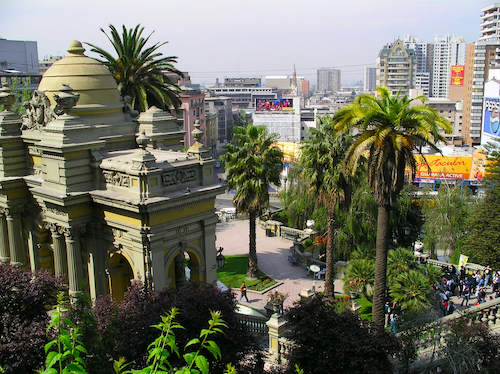Chile is a beautiful country and a great property investment destination. As expected, there are legal obligations you need to meet before you can buy property in the country. Many expats living in Chile will decide to rent for the first year before they start considering purchasing property. Due to the climate extremes, it might take a while to select the best place for you to live. In the north, the climate is desert-like, with Mediterranean climate in central Chile, while the far south has a cool and damp climate.Expats tend to invest in properties located in Santiago, Vina del Mar and Valparaiso, which are found in the central, temperate region. As you head to the Argentina border, you can find ski resorts. The coast has beautiful beaches, though the water might be a little cold for some people. When it comes to property rights, expats are as protected in the same way as locals. However, migrants are restricted from buying property in the border areas, although it is unlikely that you would want to stay in such areas.
The purchase process is quite straightforward, though it would be beneficial if you are fluent in Spanish or have a Chilean friend who can help you in the process. Property consultants are an option that can save you time and money.

With a tourist visa, you can buy property in Chile. However, to finalize the process you will need an RUT number. Obtaining one of these is quite easy. An RUT number is a taxpayer ID that works in a similar manner as the US social security number. You don’t need to be living in the country to get one of these numbers. All you have to do is to go to the local servicio de impuestos internos office with your passport, a completed form, and current address details.
You will be issued a temporary RUT number while you wait for the permanent card. Using this number, you can complete transactions and even purchase property. You need to ensure that your permanent card is sent to the correct address, as it can be hard to arrange redelivery of your card if you are no longer at the address you gave while applying for the card.
Real estate agents in Chile are unregulated, meaning anyone can become an agent. Therefore, expats need to be aware of what to expect from estate agents. Real estate agents are representatives of the property seller. However, their commission is paid by both the buyer and seller. Commission ranges from 1.5 to 3 percent, which is negotiable, especially if the agent did not do much to help you find the property.

In Chile, it is common for properties to be listed with various agencies, and for the agent not to know the identity of the seller until they get a buyer. Real estate agents vary from large companies to local individuals who know about the area. Contact one who is based in the area you would like to live.
Keep in mind that an agent should not conduct title search or draft contracts. That is the job of a qualified attorney. Some agents may use unethical sales techniques to force you into buying a home that does not meet your requirements. Do not hire a lawyer that the seller or agent suggests. To avoid conflicts of interest during the buying transaction, go for an independent lawyer.
It is possible to buy property without being in Chile, though to get your ideal home it is essential to be there. There are many expats in the country looking for property. Helpfully, there are several websites and magazines dedicated to helping potential buyers. You can quickly locate properties at Vina del Mar, Santiago and Valparaiso. You can identify property through land registry office notices, newspapers, real estate websites, or notary office boards.
Once you have located the home you want, you need to notify the agent so that you can view the house. You will be given an ordena de visit, which is a confirmation of the commission of the agent and the property you intend to visit. You must ensure that all legal details are taken care of before purchasing the property. Your attorney will do a title search to confirm the ownership history. A title search helps to determine whether there are problems in areas such as water rights, zoning, colonization laws and building permits.

You will need the registration information for the current title on the property for a title search to take place. Other important details include the county of registration, year of registration and registration number. As soon as you have gathered this information, you can ask for a certificate of valid ownership from the county registry office. This document will be used to do a title search.
Once you or the attorney make an offer on the property and the seller agrees, you will be required to sign the contracts. The attorney will then draft the contact for you since this has to be presented in a particular format. Both parties will need to sign it at the notary’s office. Once signed, the document becomes public record and is archived by the notary. However, a few more steps need to be completed before you can fully own the property.
Once the contract is signed, you need to register a copy of the formal agreement at the real estate land registry. You will need to have a stamp from the land registry, a number assigned to the index book, the property archive year, and the registration number. Once you have registered with the land register, you will receive a certificate that proves you are the legal owner of the property.
The costs related to negotiations and contracts are shared, but the other fees such as title search and registration of the agreement are done by the buyer. The taxes paid on a property are decided by the government after an assessment of the property. The rate is set by the Chilean tax office. Remember, the value of your property determines the tax and not the market value of the property. Taxes are usually around 0.5 percent of the market value of the property. Urban properties worth less than $14,655,788 are not subject to property taxes. This rule applies to all buildings within urban areas.
Would you like to share your experience of life abroad with other readers? Answer the questions here to be featured in an interview!

